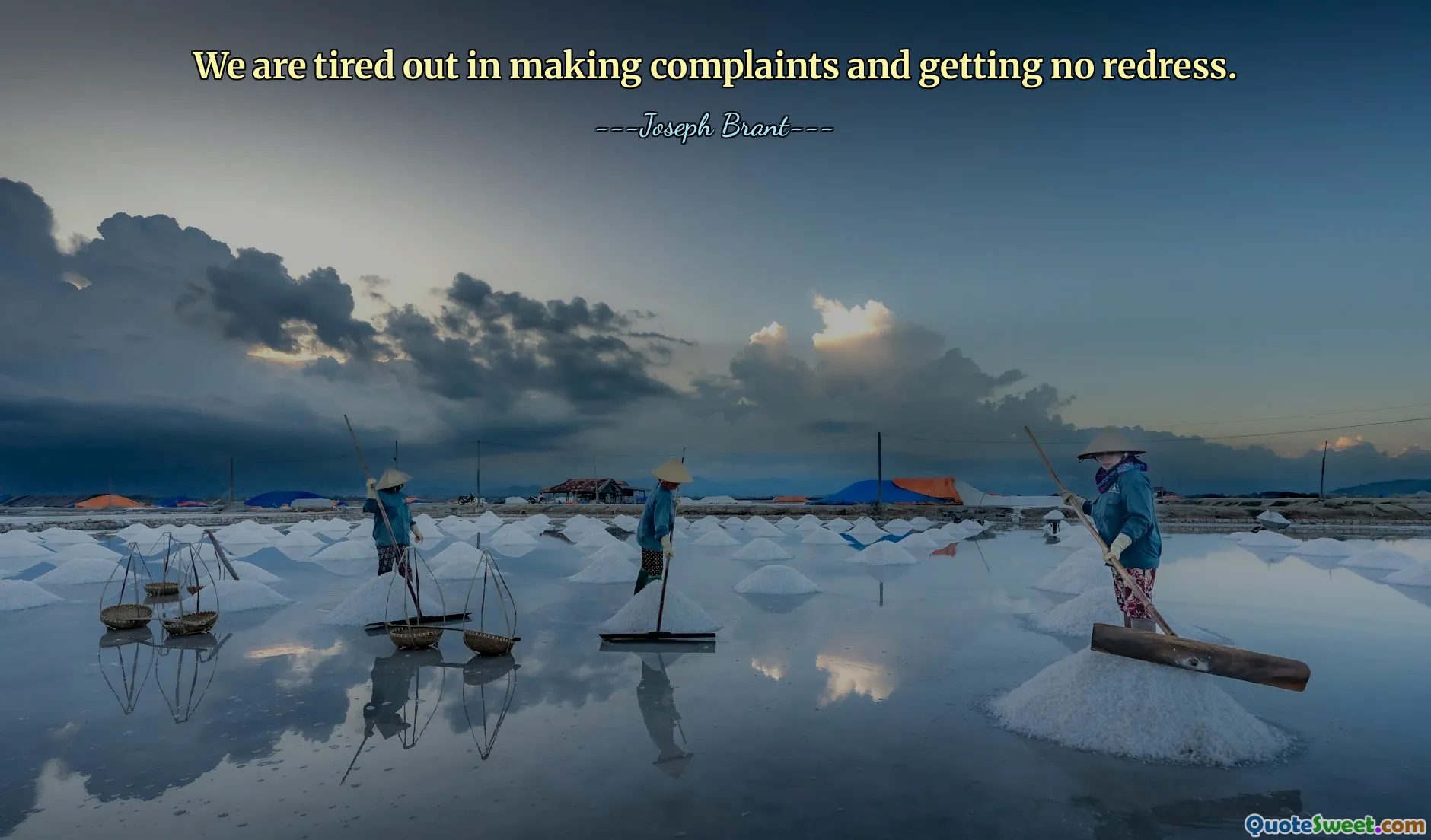
We are tired out in making complaints and getting no redress.
This quote highlights the profound sense of frustration and hopelessness that can arise when efforts to seek justice or change are met with indifference or inaction. It resonates deeply in situations where individuals or groups repeatedly voice their grievances, only to find their concerns dismissed or ignored. Such feelings can lead to emotional exhaustion, a loss of faith in institutions, and a sense of despair about the possibility of meaningful change. The fatigue expressed here underscores the importance of responsive systems and empathetic listening. When people feel unheard, their disillusionment grows, which can escalate into social unrest or cynicism. Throughout history, many movements have arisen from this very sentiment — individuals becoming disillusioned after attempts to reform or address injustices fail repeatedly. It also speaks to the human need for acknowledgment and justice; without tangible redress, the cycle of complaint becomes draining and futile. This quote emphasizes the critical role that responsive and effective mechanisms play in addressing grievances, fostering trust, and maintaining social harmony. If societies neglect these mechanisms, they risk losing their moral legitimacy and risking further disenfranchisement of their citizens, with long-term repercussions. Moreover, on an individual level, persistent feelings of being unheard can erode mental well-being and resilience. Overall, this quote serves as a reminder of the importance of compassion, active listening, and prompt justice in social interactions and governance — values that uphold the dignity of every individual and cultivate trust within communities.








